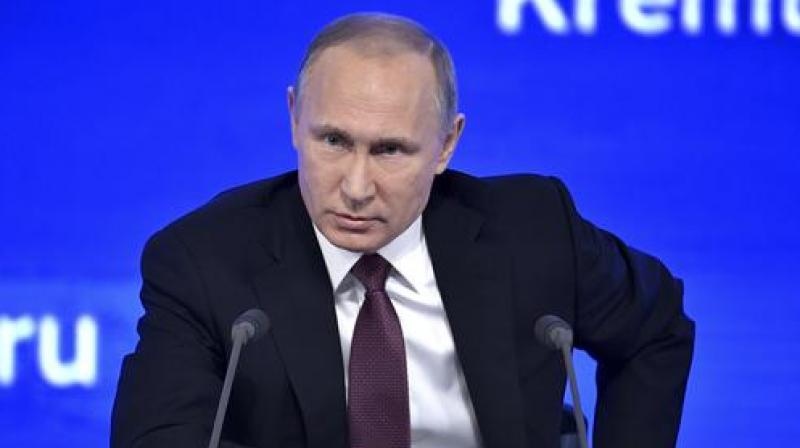US Blacklists Vladimir Putin Ally, Alleged Alexander Litvinenko Killers

Washington: The United States on Monday blacklisted Russian President Vladimir Putin's reputed top enforcer and the prime suspects in the murder of ex-spy Alexander Litvinenko in London a decade ago.
The US Treasury added Russia's senior federal investigator Alexander Bastrykin and alleged assassins Andrei Lugovoi and Dmitri Kovtun to the Magnitsky Act sanctions list.
Announcing the decision, the State Department did not detail what the new targets are accused of, but the move comes at a time of increased diplomatic tension with Moscow.
"Each of the most recently added names was considered after extensive research," spokesman John Kirby said.
Kirby said the targeted names have "roles in the repressive machinery of Russia's law enforcement systems, as well as individuals involved in notorious human rights violations."
President Barack Obama's outgoing administration has accused the Kremlin of using cyber espionage, targeted leaks and propaganda in a bid to influence November's White House race.
US President-elect Donald Trump was angered when American intelligence agencies warned of the Russian hacking, alleging that they were behind a "witch hunt" to tarnish his win.
Moscow has scornfully rejected the charges, echoing Trump's "witch hunt" charge.
But Washington has already expelled 35 Russian diplomats in response and Monday's decision targeted a close Putin ally.
Asked why Obama's final update to the Magnitsky Act had still not included Putin himself, a senior administration official said Washington does not want a complete breakdown in ties.
Polonium-laced tea
"We need to preserve the possibility of working with Russia in areas in which it is in the US national interest," the official told AFP, on condition of anonymity.
"This includes pressing for diplomatic solutions to the crises in Syria and eastern Ukraine," he added.
"Our goal in imposing sanctions is to change behavior," he said. "We have taken steps to make clear that interference in US democratic processes will not go unanswered."
Bastrykin is one of the Russian president's most powerful allies and is head of an investigative agency that had led crackdowns on domestic dissidents.
He famously once had to apologize to a journalist after allegedly threatening to have him killed, and he has targeted foreign NGOs accused of meddling in Russian politics.
Britain has identified Lugovoi and Kovtun as main suspects in the death of Litvinenko, who succumbed to radiation poisoning in London in 2006 after drinking polonium-laced tea.
In January last year, after a British inquiry, judge Robert Owen said he was sure that Lugovoi and Kovtun had put polonium-210 in Litvinenko's tea at a hotel on November 1, 2006.
Litvinenko was a former Russian agent turned freelance investigator who had collaborated with British intelligence.
The British inquiry concluded that the murder had probably been ordered by the then head of Russia's FSB intelligence agency and had been personally approved by Putin himself.
British intelligence
Lugovoi, a member of Russia's lower house of parliament, has denied the charge, which is based in part on still classified evidence gathered by the British security services.
Russia has refused to extradite the men for questioning.
The Magnitsky Act was originally passed to enable US officials to impose sanctions on Russians implicated in the 2009 prison death of Russian tax fraud whistleblower Sergei Magnitsky.
But more individuals have been blacklisted over the years.
The target list now includes 44 names of those whose assets under US jurisdiction are frozen, and who are barred from doing business with Americans or receiving US visas.
The act allows for the designation of those implicated in the murder, torture or persecution of those who reveal corruption in Russia, Kirby explained.
The US authorities also added two less well-known officials, Stanislav Gordievsky and Gennady Plaksin, to the list.

